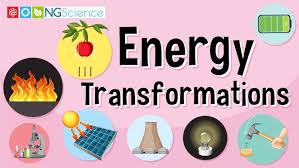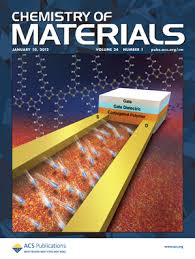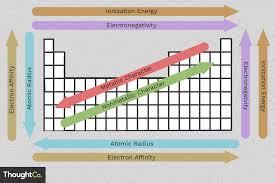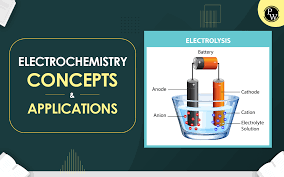
Energy Transformation Processes – HNK Globals
Description:
Energy transformation refers to the conversion of energy from one form to another. This process is fundamental to powering technologies, systems, and industries that sustain modern life. Energy can be transformed from mechanical, electrical, chemical, thermal, nuclear, or light energy to serve specific purposes, such as heating, electricity generation, or powering vehicles. A deep understanding of energy transformation processes is critical in the context of sustainability, environmental conservation, and the efficient use of resources. As the world shifts toward renewable energy solutions, the focus is increasingly on optimizing energy transformations to reduce waste, improve efficiency, and minimize environmental impact. Through a variety of technologies—such as wind turbines, solar panels, fuel cells, and thermal power plants—energy is continuously transformed, playing a key role in shaping the future of energy production and consumption.
Key Concepts in Energy Transformation:
Mechanical to Electrical Energy
- Mechanical energy, typically from turbines or engines, is often transformed into electrical energy through generators. This process is widely used in power plants, wind farms, and hydropower stations to generate electricity.
Chemical to Thermal Energy
- In processes like combustion, chemical energy stored in fuels (e.g., coal, natural gas, or biomass) is converted into thermal energy (heat). This heat can then be used for heating, industrial processes, or to drive steam turbines for electricity generation.
Electrical to Mechanical Energy
- Electrical energy can be converted into mechanical energy in devices such as motors, which power machines and appliances. This is seen in everything from household appliances to industrial machinery.
Thermal to Mechanical Energy
- Heat energy is often transformed into mechanical energy, particularly in thermal power plants where steam is produced from heated water, driving a turbine to generate electricity.
Nuclear to Thermal Energy
- In nuclear reactors, nuclear energy is transformed into thermal energy through the process of nuclear fission. This thermal energy is used to generate steam, which drives turbines to produce electricity.
Solar to Electrical Energy
- Solar energy, captured through photovoltaic cells, is transformed into electrical energy. Solar panels are a growing source of renewable energy, converting sunlight directly into electricity without harmful emissions.
Wind to Electrical Energy
- Wind turbines transform the kinetic energy of wind into electrical energy. This renewable energy source is growing rapidly due to its sustainability and efficiency in many regions.
Hydropower Energy Transformation
- Hydropower stations transform the potential energy of water stored at height (in dams) into mechanical energy, which is then converted into electrical energy using turbines. It is one of the oldest and most efficient renewable energy sources.
Geothermal Energy Transformation
- Geothermal energy uses the heat from the Earth’s interior to produce steam, which is used to drive turbines and generate electricity. It is an abundant and renewable energy source that is particularly effective in regions with geothermal activity.
Energy Storage and Conversion
- Advanced energy storage systems, such as batteries and supercapacitors, store electrical energy and later convert it back into electrical or mechanical energy as needed. Efficient storage solutions are vital for balancing supply and demand in energy grids, especially when using intermittent renewable sources like solar or wind.
Energy Transformation Technologies:
Photovoltaic Solar Cells
- These devices convert sunlight directly into electricity through the photovoltaic effect. Solar panels made of semiconducting materials are the most common form, contributing significantly to renewable energy generation.
Wind Turbines
- Wind turbines harness wind energy to generate mechanical power, which is then transformed into electrical energy. Modern turbines are highly efficient, generating clean energy with minimal environmental impact.
Fossil Fuel Power Plants
- Traditional power plants burn coal, natural gas, or oil to produce heat, which drives steam turbines and generates electricity. While effective, these processes emit greenhouse gases, making them a target for cleaner energy alternatives.
Nuclear Reactors
- Nuclear power plants use the energy released from nuclear fission reactions to produce heat. This heat is used to generate steam, which turns turbines to produce electricity without the harmful emissions of fossil fuels.
Hydropower Plants
- Hydropower systems use the potential energy of water stored in reservoirs to produce mechanical energy via turbines. This is then transformed into electrical energy, providing a clean and renewable source of power.
Bioenergy Systems
- Biomass (plant and animal waste) can be converted into biofuels (like ethanol or biodiesel) or burned directly to produce heat and electricity. This process transforms chemical energy in organic materials into usable energy forms.
Thermoelectric Generators
- Thermoelectric generators convert heat directly into electrical energy by exploiting the temperature difference between two materials. These are used in waste heat recovery systems and some space applications.
Fuel Cells
- Fuel cells transform the chemical energy in hydrogen into electrical energy through an electrochemical reaction. They are a promising technology for clean energy, used in applications such as electric vehicles and backup power systems.
Tidal and Wave Power
- These renewable energy sources use the kinetic energy of ocean waves and tides to generate mechanical energy, which is then converted into electricity. This type of energy transformation is still under development but holds great promise.
Advanced Grid Systems
- Smart grids and other advanced energy systems manage and distribute electricity more efficiently, using data analytics to optimize energy use, reduce waste, and integrate renewable sources into the energy mix.
Applications of Energy Transformation:
Electricity Generation
- The primary application of energy transformation is electricity generation, where various forms of energy (mechanical, chemical, thermal) are transformed into electrical energy to power homes, industries, and devices.
Transportation
- In electric vehicles (EVs), energy from batteries (chemical energy) is converted into mechanical energy to power motors. Similarly, hydrogen fuel cells are used in some vehicles to convert chemical energy into electrical energy.
Industrial Applications
- Industrial processes often rely on energy transformations, such as converting thermal energy into mechanical energy for machinery, or using electrical energy to power automated systems.
Home Heating and Cooling
- Thermal energy transformations, such as using heat pumps or geothermal energy, are commonly used in homes for heating and cooling purposes, providing efficient and sustainable climate control.
Renewable Energy Integration
- Renewable energy sources, such as wind, solar, and hydropower, transform natural energy into electricity, which is increasingly integrated into power grids to reduce reliance on fossil fuels.
Waste Heat Recovery
- Industrial facilities and power plants often capture excess heat (thermal energy) and transform it into usable electricity or thermal energy for other processes, increasing energy efficiency.
Space Exploration
- Energy transformation processes are critical in space missions, such as converting solar energy into electrical energy for spacecraft or using nuclear energy for power generation on distant planets.
Backup Power Systems
- Energy transformation technologies like fuel cells and battery storage systems are used in backup power systems, ensuring an uninterrupted supply of electricity during power outages.
Energy Efficiency Solutions
- Transforming energy efficiently is crucial for reducing consumption and minimizing environmental impact. Technologies like LED lighting, high-efficiency motors, and smart thermostats are designed to transform energy more effectively.
Environmental Conservation
- By focusing on renewable energy sources and more efficient energy transformations, we reduce the environmental impact of energy production and consumption, contributing to a sustainable future.
Why Choose HNK Globals for Energy Transformation Education?
Comprehensive Learning Modules
- Our courses cover the entire spectrum of energy transformation technologies, from traditional power generation to cutting-edge renewable energy systems, providing students with a broad and deep understanding of energy systems.
Practical Experience
- Students at HNK Globals engage in hands-on learning experiences, working with real-world energy systems, advanced lab equipment, and cutting-edge technologies in energy transformation.
Industry-Relevant Curriculum
- HNK Globals collaborates with energy experts and organizations to ensure that our curriculum reflects the latest industry trends and best practices in energy transformation and sustainability.
Sustainability Focus
- As a leader in renewable energy education, HNK Globals emphasizes the importance of sustainability and energy efficiency, preparing students to tackle the global energy challenges of the future.
Global Networking Opportunities
- Students have the opportunity to connect with experts, researchers, and professionals in the energy sector, gaining valuable insights and career connections for a successful future in energy transformation.
Join HNK Globals and become a leader in the field of energy transformation, shaping the future of sustainable energy and technology!








